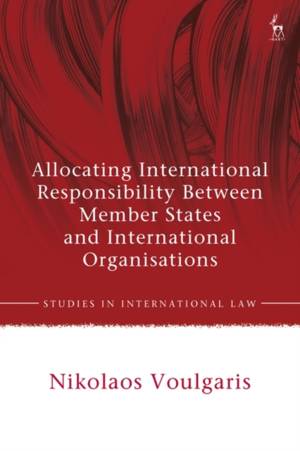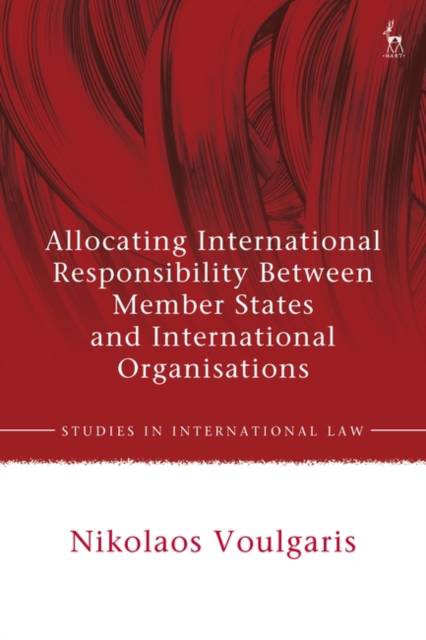
- Afhalen na 1 uur in een winkel met voorraad
- Gratis thuislevering in België vanaf € 30
- Ruim aanbod met 7 miljoen producten
- Afhalen na 1 uur in een winkel met voorraad
- Gratis thuislevering in België vanaf € 30
- Ruim aanbod met 7 miljoen producten
Zoeken
Allocating International Responsibility Between Member States and International Organisations
Nikolaos Voulgaris
€ 203,95
+ 407 punten
Omschrijving
The ever-growing interaction between member States and international organisations results, all too often, in situations of non-conformity with international law (eg peacekeeping operations, international economic adjustment programmes, counter-terrorism sanctions). Seven years after the finalisation of the International Law Commission's Articles on the Responsibility of International Organisations (ARIO), international law on the allocation of international responsibility between these actors still remains unsettled. The confusion around the nature and normative calibre of the relevant rules, the paucity of relevant international practice supporting them and the lack of a clear and principled framework for their elaboration impairs their application and restricts their ability to act as effective regulatory formulas.
This study aims to offer doctrinal clarity in this area of law and purports to serve as a point of reference for all those with a vested interest in the topic. For the first time since the publication of the ARIO, all international responsibility issues dealing with interactions between member States and international organisations are put together in one book under a common approach. Structured around a systematisation of the interactions between these actors, the study provides an analytical framework for the regulation of indirect responsibility scenarios. Based on the ideas of the intellectual fathers of international law, such as Scelle's 'dédoublement fonctionnel' theory and Ago's 'derivative responsibility' model, the book employs old ideas to add original argumentation to a topic that has been dealt with extensively by recent commentators.
This study aims to offer doctrinal clarity in this area of law and purports to serve as a point of reference for all those with a vested interest in the topic. For the first time since the publication of the ARIO, all international responsibility issues dealing with interactions between member States and international organisations are put together in one book under a common approach. Structured around a systematisation of the interactions between these actors, the study provides an analytical framework for the regulation of indirect responsibility scenarios. Based on the ideas of the intellectual fathers of international law, such as Scelle's 'dédoublement fonctionnel' theory and Ago's 'derivative responsibility' model, the book employs old ideas to add original argumentation to a topic that has been dealt with extensively by recent commentators.
Specificaties
Betrokkenen
- Auteur(s):
- Uitgeverij:
Inhoud
- Aantal bladzijden:
- 264
- Taal:
- Engels
- Reeks:
Eigenschappen
- Productcode (EAN):
- 9781509925728
- Verschijningsdatum:
- 16/05/2019
- Uitvoering:
- Hardcover
- Formaat:
- Genaaid
- Afmetingen:
- 156 mm x 234 mm
- Gewicht:
- 539 g

Alleen bij Standaard Boekhandel
+ 407 punten op je klantenkaart van Standaard Boekhandel
Beoordelingen
We publiceren alleen reviews die voldoen aan de voorwaarden voor reviews. Bekijk onze voorwaarden voor reviews.








